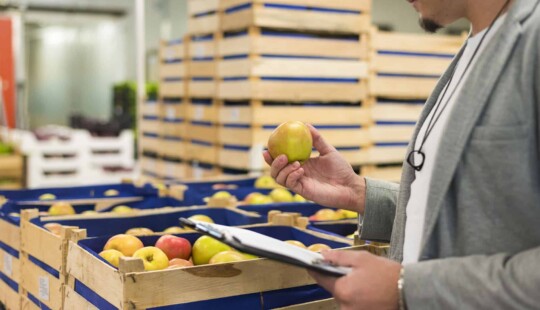Business as usual is over. Recognition is growing that we are consuming resources almost twice as fast as the planet can replenish them. At this rate , we will need one additional planet to sustain us.
At the same time, the climate crisis is compounding our planet’s resource crisis, with 2020 being one of the warmest years on record. But 2020 was also the year we saw a sizeable – albeit temporary – drop in humanity’s resource consumption. The year brought us the COVID-19 pandemic, and that changed consumer behavior almost overnight. In so doing, it also offered a unique opportunity to rethink the role businesses play in the environment, society, and economics.
Now is the time to turn strategies for climate action and circular economy principles into action. Companies must anticipate the carbon footprint of any business decision they make, as well as its impact on society. Merely measuring the carbon footprint as a function of production doesn’t go nearly far enough, given that emissions created by supply chains can be more than five-times greater than those created by enterprises directly. Measuring, monitoring, and reducing carbon emissions across the entire value chain means inventing entirely new value chains. And these will no longer be linear.
At SAP, we have started down this circularity path, pioneering approaches that support responsible design, sourcing, production, consumption, recovery, and reuse. These are the “responsible” actions that challenge linear value chains. And consumers want them; they want to know that the metals in the batteries they throw out are being recovered and reused, that the shampoo packaging they buy has been designed and produced using pollution-reducing methods and sourced from residual plastic waste, and that the clothes they wear have not been manufactured using child labor.
That goes well beyond just checking labels for ingredients. In one study, 73% of consumers said traceability of products is important to them. Of those, 71% would even pay a premium for it. Consumers want details about sourcing, how products are made or processed, how they are delivered, as well as assurances that brands take actions demonstrating social responsibility.
But can today’s supply chains deliver? In many cases, supply chains are not only linear, they are also fragmented. Businesses that insist on maintaining enterprise-centric systems are restricting their own network visibility and collaboration. Companies that still rely on one-to-one connections and paper-based processes to connect with customers, suppliers, manufacturers, and distributors are losing any advantages their products might offer.
Now, more than ever, to achieve circularity, we must connect these linear, fragmented supply chains into unified, collaborative, and intelligent business networks.
Jump-starting these efforts requires that SAP engage in alliances and partnerships that accelerate marketplaces for waste materials, enable more responsible production methods and ensure better consumer experiences. To name one of a number of such alliances, SAP is a member of the Ellen MacArthur Foundation, helping companies enhance their resource productivity and realize a circular economy.
We aspire to lead by example. The recent announcement of our intention to become carbon-neutral in our own operations by the end of 2023 — two years earlier than previously planned — is a strong statement of our commitment to sustainable business operations. The impact of technology and digital solutions extends beyond the boundaries of companies and industries. They can be multipliers for change. For example, by 2030, new digital technologies could reduce global carbon emissions by 20%.
SAP is uniquely positioned to help build a low-carbon future and create the foundation for a circular economy. But such a fundamental shift cannot be accomplished by one single entity. It is the responsibility of businesses, governments, and regulators to scale up efforts. With nearly 50 years of industry and supply chain expertise, we at SAP are ready to support, enabling a rich ecosystem of sustainability startups and intelligent business networks.
I couldn’t be more committed to SAP’s contribution, and I look forward to inspiring our customers to scale with us!
To learn more about sustainability innovations across disciplines and sectors from SAP and our ecosystem, please register for the virtual SAP Sustainability Summit.
Thomas Saueressig is a member of the Executive Board of SAP SE, SAP Product Engineering.
This piece was originally published on LinkedIn.



